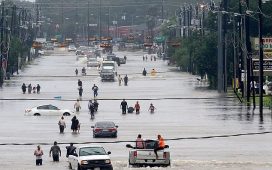Young people who spend too much time online are more likely to miss school through illness or truancy, a study has suggested.
Teenage girls appear to be more likely than teenage boys to score highly on excessive internet use, the findings indicate. But a good amount of sleep and exercise and a trusting relationship with their parents appear to go some way to reducing the effects of extreme web use on classroom absences.
The findings of the research, led by a team in Finland, were published in the Archives of Disease in Childhood journal.
To try to gauge what impact excessive internet use may have on school attendance and what, if any, mitigating factors there could be, the team used data from the School Health Promotion study, a survey conducted in Finland and managed by the country’s Institute for Health and Welfare.
They focused on 86,270 year 8 and 9 pupils aged 14 to 16. The teens were specifically asked about their relationship with their parents in terms of how often they shared concerns with them, as well as how long they slept each night, and on how many days of the week they had been on the move for at least an hour.
Excessive internet use was assessed by measuring five lifestyle factors that indicate compulsion: neglect of family, friends and study; anxiety if not online; and failure to eat or sleep because of being online.
Respondents were asked to estimate how often they experienced each of these, scoring them from one (never) to four (very often) to provide an overall average. They also provided information on how many times during the most recent school year they had played truant or been absent due to illness.
The scale’s average score was just under two, and just above 2% (1,881) of participants scored the maximum of four. Girls were more likely to use the internet excessively than boys, the researchers found.
Spending an excessive amount of time online was associated with an increased risk of truancy (38% heightened risk) and medically explained school absences (24% heightened risk).
But good parental relations, longer nightly weekday sleep and physical activity all emerged as significantly protective, with more of each factor associated with a steadily decreasing risk of truancy and school absences due to illness.
Being able to talk about concerns with parents was most strongly associated with the lowest risk of either type of school absence. Teens who often felt able to share troubling issues with their parents were 59% less likely to play truant and 39% less likely to be absent from school due to illness.
This is an observational study and no firm conclusions could be drawn about causal factors. The researchers acknowledged that the School Health Promotion data did not include information on the type of internet use teens engaged in.
“Despite the limitations, our results have important implications for promotion of health and educational attainment,” the researchers said. “Our results are relevant for professionals organising and working in school health and wellbeing services, especially when professionals meet students whose school absences raise concern.”











